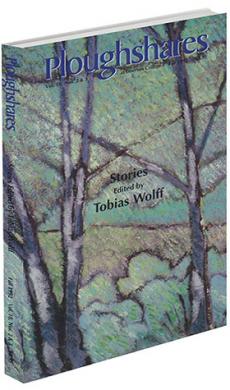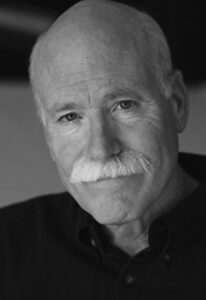rev. of Gilgamesh by David Ferry
The poem of Gilgamesh, recreated by David Ferry from the thirtieth-century B.C. epic which is itself a retelling of an older Sumerian text, is best known by most readers for a tale of the Flood, complete with Sumerian Noah, that parallels Genesis. But the full narrative is a more troubling, darker story of a stormy-hearted tyrant-king who meets the Wild Man Enkidu, created by gods to be his adversary. Instead of destroying each other, Gilgamesh and Enkidu become beloved companions and adventurers, slaying the demon of the Cedar Forest and Ishtar's retributive Bull of Heaven. When Enkidu dies for his transgressions against the forest god, Gilgamesh grieves, "Must I die too? Must Gilgamesh be like that?" and undertakes a terrifying journey to seek advice from the only man known to have escaped mortality; rebuffed, he returns empty-handed to his city, Uruk.
Ferry's brisk narrative is carried by blank-verse couplets which give both freedom and structure to his eloquent and accessible translation. Careful to avoid language for which there is no scholarly precedent, Ferry preserves the text's austerity (there are no equivalents of Norse kennings or Greek epithets, and the wordplay in Harold Bloom's reading of
The Book of J is absent) while writing verse of great emotional power: "Time after time the river has risen and flooded. / The insect leaves the cocoon to live but a minute. / How long is the eye able to look at the sun? / From the very beginning nothing at all has lasted."
A subtext of
Gilgamesh is the triumph of this new human invention, the city. Enkidu, who speaks to animals and grazes with gazelles, is transformed by Uruk into an urbane dresser and civilized companion for the city's ruler. The two hew cedars of the Forbidden Forest to build new gates for Uruk, and after Gilgamesh brings down the Bull of Heaven, he calls forth the city's artisans to observe its workmanship. When the goddess Ishtar lusts after Gilgamesh, he responds with the choicest town gossip, a list of lovers she has abandoned: "Tammuz the slain / . . . / The lovely shepherd bird / . . . / whose wing you broke and now wing-broken cries; / . . . / The goatherd who brought you cakes and daily for you / slaughtered a kid, you turned him into a wolf." The epic hero's quest for fame seems possible only within an urban culture through which fame could easily spread.
Gilgamesh, Western literature's first epic hero, is also its first anti-hero. With Nietzschean will, Gilgamesh rejects his mortal fate, and is in turn rejected in his search for immortality. The poem ends as it begins, at the city gates: ". . . The journey has gone for nothing / . . . / I descended into the waters . . . / and what I found was a sign telling me to / abandon the journey and what it was I sought for." Ferry completes his book with a fragment from an earlier text interpolated with the Babylonian poem that is his source. "Gilgamesh, Enkidu and the Nether World" reiterates the epic's concern with death and the sorrows of the afterlife. In all, David Ferry's version of
Gilgamesh draws fresh from the well of human feeling, even from the depths of two hundred fifty generations.

